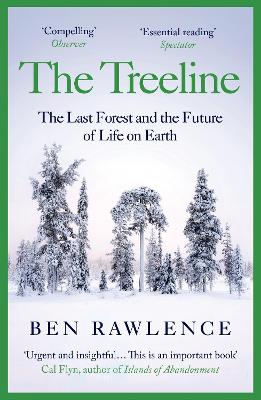Reviewed by Jeff Sexton on
Reading updates
- Started reading
- 13 February, 2022: Finished reading
- 13 February, 2022: Reviewed

A ground-breaking and beautifully written investigation into the Arctic Treeline with an urgent environmental message.
'Evocative, wise and unflinching' Jay Griffiths, author of Wild
The Arctic treeline is the frontline of climate change, where the trees have been creeping towards the pole for fifty years already.
Scientists are only just beginning to understand the astonishing significance of these northern forests for all life on Earth. At the treeline, Rawlence witnesses the accelerating impact of climate change and the devastating legacies of colonialism and capitalism. But he also finds reasons for hope. Humans are creatures of the forest; we have always evolved with trees and The Treeline asks us where our co-evolution might take us next.
SHORTLISTED FOR THE JAMES CROPPER WAINWRIGHT PRIZE
'A moving, thoughtful, deeply reported elegy for our vanishing world and a map of the one to come' Nathaniel Rich, author of Losing Earth
'A lyrical and passionate book... The Treeline is a sobering, powerful account of how trees might just save the world, as long as we are sensible enough to let them' Mail on Sunday
'Ben Rawlence circumnavigates the very top of the globe - returning with a warning, in this enthralling and wonderfully written book' Mark Lynas, author of Six Degrees